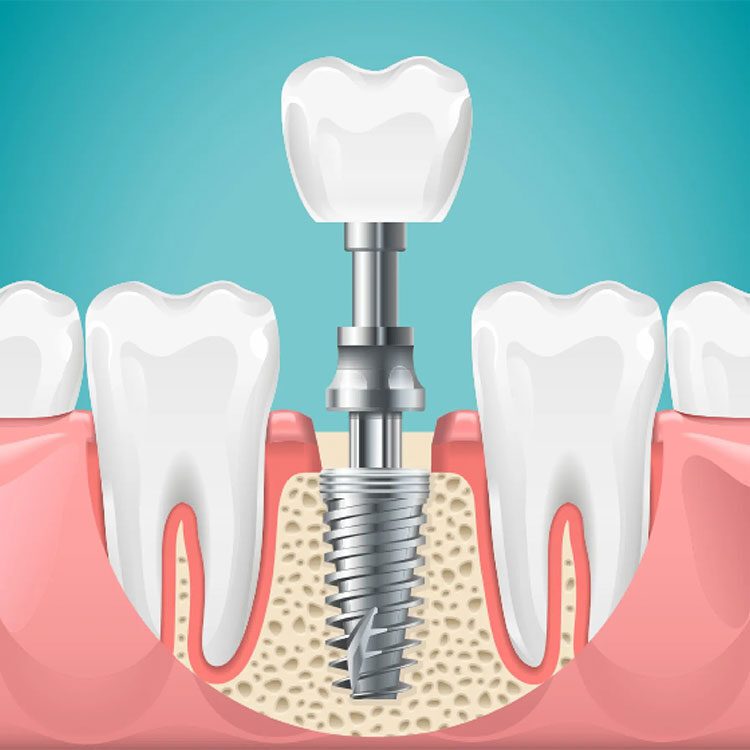Dental Implants are a device used to repair or replace a part of the body with a biocompatible material. Dental implants are the most biocompatible dental material which can be used inside the body of the jaw bone to replace the tooth from its root. Few implants which get support from the base of the jaw bone called as basal implants. Which are the best solution for less bone and no bone cases also.
Cost for replacement of tooth mainly depending upon the type of dental implant (two piece implants, single pieces implants, basal dental implant & zygomatic implants) used, how many implants placed (all on 4 dental implants, all on 6 implants, full mouth dental implants, whole mouth dental implants).
What is Dental Implant?
A dental implant is a small titanium post that is surgically placed into the jawbone to serve as the root of a missing tooth. Once the implant has fused to the jawbone, a replacement tooth called a crown can be attached to the implant. This provides a stable, long-term solution for missing teeth and can improve the appearance and function of the smile.
Dental Implants: A tooth has two components, the crown, and the root. When a tooth is lost, the best replacement for the root would be an implant with a crown that will be fixed on top of it. The crown fixed acts as an active tooth and will aid in all the functions the same as the natural tooth. With the advancements in dentistry, the missing tooth can be replaced with an implant in as minimal as 24 hours.

Procedures involved In getting a dental implant:
Dental implant is usually done in stages, with a series of minor operations and tests.
First step is the development of an individualized treatment plan.
The treatment plan is prepared by a team of professionals and experienced oral and maxillofacial surgeons / implantologist.
Step 1: To provide us a very good idea of where to place the implant, scans, and x-rays are performed.
Step 2: To ensure that you are pain-free during the procedure, an anesthetic will be administered.
Step 3: The dental implant is fitted into the jawbone by making pinholes. One must wait till the bone has properly healed.
Step 4: During the healing process, the implant gets integrated with the jaw bone.
Step 5: When the implant is stable, we will lay the foundation for the new tooth or teeth.
Step 6: To make the new tooth, we will make impressions of your teeth and creates a model of your bite.
Step 7: Finally, the artificial crown is screwed or cemented into place.
Benefits of Dental implant
- Restores the full chewing power
- Dental Implants are Biocompatible
- Dental implants are Durable
- Dental implant maintains the oral health
- Dental implants maintain the jaw-bone level
- Dental implants improve self-esteem
After-Care for Dental Implants:
- Follow the prescription given by your dentist.
- Intermittent ice packs would help in reducing the swelling if there is any
- It is advisable that you refrain from smoking until the wound has fully healed because it severely hinders oral healing.
- Avoid alcohol, hot food, hot liquids, and carbonated beverages for 48 hours.
- Start brushing your teeth carefully after meals the day following surgery.
- We advise using a water flosser to help remove the plaque more effectively.

